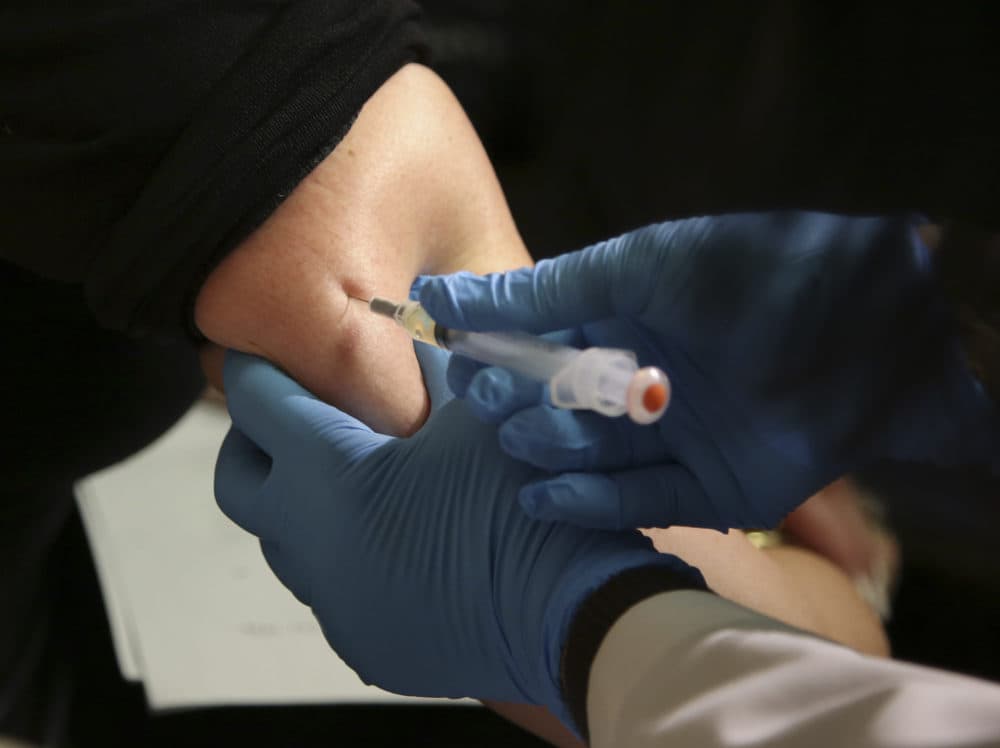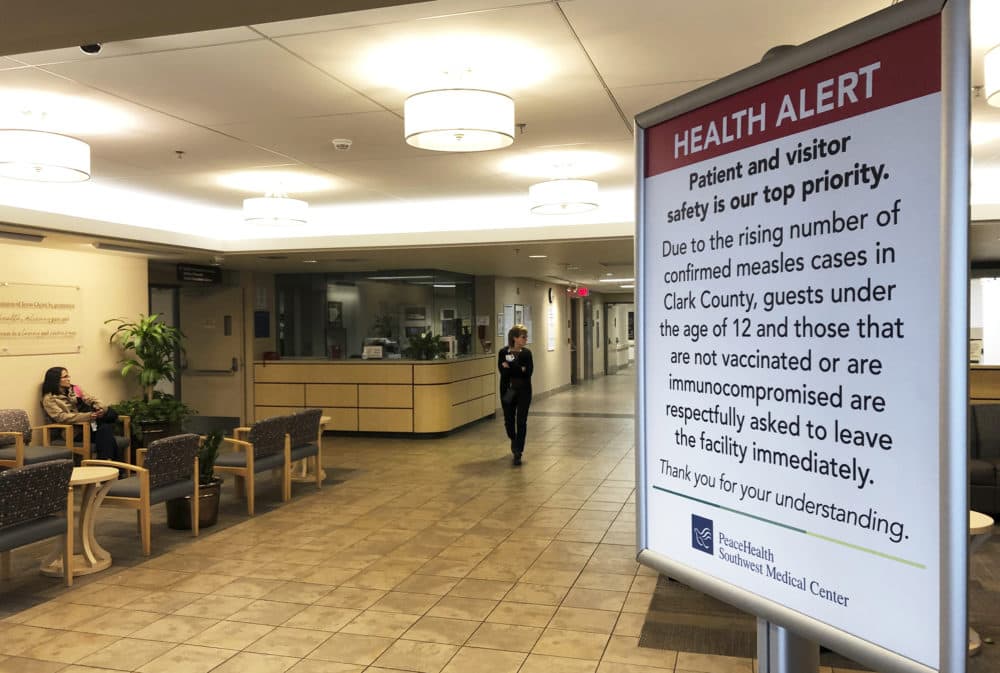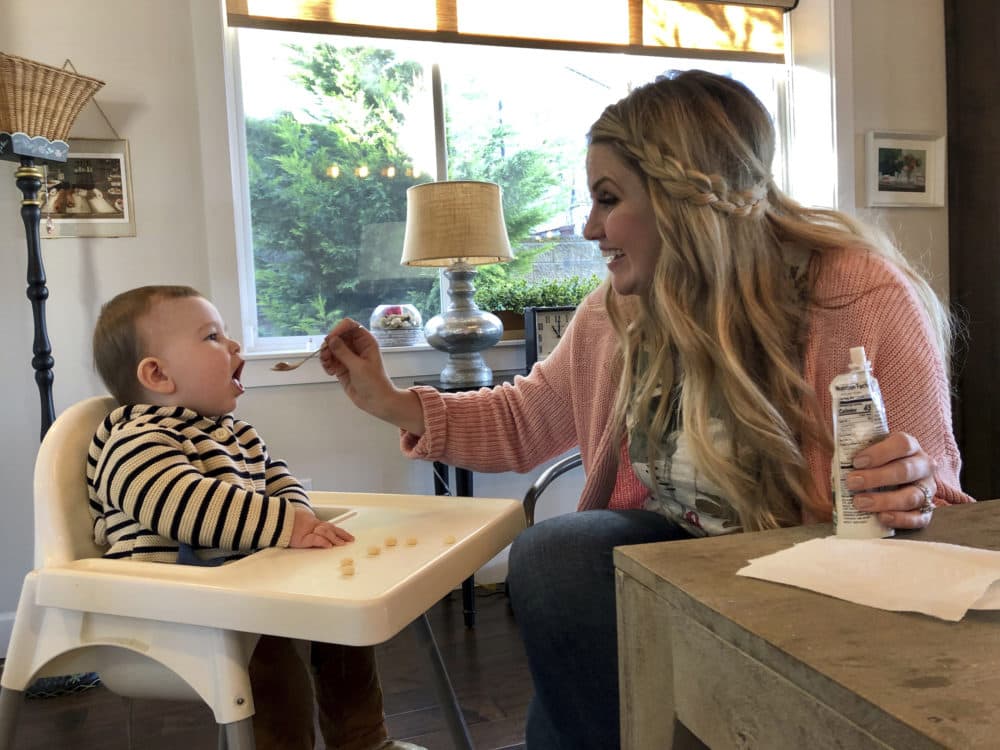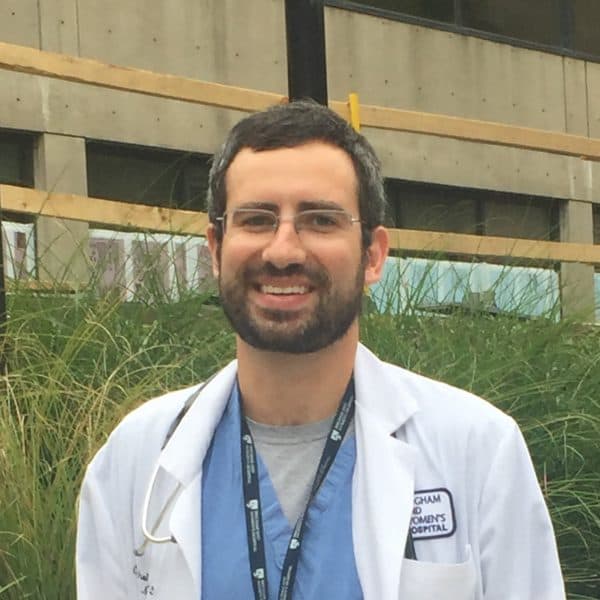Advertisement
Commentary
Protect Our Children From 'Stupid Deaths' By Mandating Vaccines

A year ago, while working in rural Haiti, I watched in horror as my newborn patient’s muscles were overcome with waves of painful spasms, a consequence of neonatal tetanus. Born prematurely, the baby had been delivered at home, her umbilical cord cut with an unsterile instrument. Despite our best efforts, she died. Her mother hadn’t been empowered to seek prenatal care, and therefore had not received the customary vaccine during pregnancy that could have averted her child's fate.
A few months ago, a 6-year-old unvaccinated boy in Oregon cut his forehead while he played outside and spent 57 days in the hospital due to the same bacterial toxin. He was attached to a ventilator, isolated in a dark room, for weeks during his $800,000 hospital stay. Even after that ordeal, his parents refused to allow him to complete the vaccine series that could protect him against a similar episode in the future.
Haitians say “li mouri bèt” when such tragedies occur, commonly translated as “stupid deaths” because they are fully preventable with modern medical advances. These deaths are shameful, not for those they befall, but for the broader systems that enable them to happen. As we watch the recently declared public health emergency unfold in New York City — an epidemic of over 359 cases of measles since October caused by low vaccination rates — we must ask ourselves why we are putting our children at risk of “stupid deaths” here in the United States by continuing to allow parents to enroll their unvaccinated children in schools through non-medical exemptions.

Since the beginning of 2019, there have already been 626 cases of measles reported in our country. In all of 2009, there were only 71. Before the introduction of the measles vaccine in 1963, as many as 4 million cases were reported in our country annually, causing hundreds of deaths each year. Eliminating measles — a victory the U.S. declared in 2000 — was an incredible accomplishment, the direct result of an effective national vaccination program. Today that work is threatened as vaccine-preventable diseases resurge across the country: The Centers for Disease Control and Prevention reports ongoing measles outbreaks in New York, Washington, California, New Jersey and Michigan.
Currently in the U.S., all 50 states require students enrolled in public (and most private) schools to receive certain vaccines, but state laws vary widely on permissible exemptions. Some children, for example, absolutely cannot receive certain vaccines, due to impaired immune systems or allergic reactions to products in the vaccines; they rely on others to be vaccinated for their protection — known as “herd immunity.” While such medical exemptions are universally respected, only Mississippi, West Virginia and (most recently) California stop there. Other states allow additional exemptions based on much more nebulous personal and/or religious beliefs.

The anti-vaccination movement — fueled by falsified research, since widely repudiated but still propagating across the Internet — has led an increasing number of parents to take advantage of these exemptions, putting their children and others at risk. In Colorado, for example, which respects medical, religious and personal exemptions, the rate of vaccine coverage against measles, mumps and rubella has dropped to only 87.2%, well below the range required to achieve herd immunity, 92-95% (these ranges vary by disease). Sadly, while parents have unfettered access to anti-science forums at home, we in pediatrics often have just a few minutes to talk with vaccine-hesitant parents about their concerns. Only rarely are we convincing in this short time.
With few available alternatives, some physicians and public officials have argued that vaccines be fully mandatory. Indeed, Mayor Bill de Blasio of New York City recently announced that vaccines would be required for citizens in certain neighborhoods, threatening penalties of up to $1,000 for noncompliance and even imprisonment for repeat offenders. While this new mandate has already been challenged in court — and I, like many pediatricians, don't advocate the incarceration of vaccine-hesitant parents — it reflects the mounting desperation authorities face in their duty to protect the public.
Advertisement
There is already a rich legal precedent on questions of mandatory vaccination and parental rights. In 1905, the Supreme Court affirmed a Massachusetts law making smallpox vaccination compulsory. Since then, the courts have ruled decisively that parents do not have the right to put their children’s health and welfare in danger.
In 1952, Morrison v. State, an appellate court in Missouri decided that a family of Jehovah’s Witnesses did not have the right to withhold life-saving blood transfusions from their child. The Supreme Court ruled in 1968 that “the right to practice religion freely does not include liberty to expose … the child … to ill health or death.” While we always hope to earn the trust of parents, pediatricians ultimately must answer to the child’s health and interests. When unvaccinated children are known to be 35 times more likely to contract measles, it is hard to see how withholding vaccines from them does not apply.
In Haiti, the system often precludes families from accessing preventive health care and achieving their full economic and educational potential. In the United States, the system allows parents who are in many cases economically and educationally privileged to deny their children access to essential vaccinations without consequence. Avoidable deaths and suffering due to vaccine-preventable diseases are stupid in both cases, but ours has an easier fix. It is time to end non-medical exemptions across the country.
